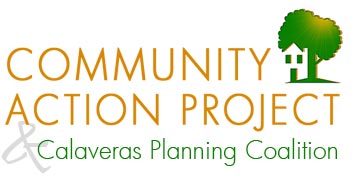CAP is a community-based citizen participation
project focused on sustainable land use planning.
Find out more about us >>
project focused on sustainable land use planning.
Find out more about us >>
CPC LAND USE PRINCIPLES
1: Land uses should be consistent with stated community visions or goals.
2: Development should not outpace the ability of local governments to provide adequate services and infrastructure or reduce the level of services provided to existing community residents.
3: Project design should work with the contour of the land, preserve physical features such as rock outcroppings, trees, watercourses, and wetlands, and protect important wildlife habitat.
4: County and city plans should protect key wildlife habitat, visual quality, agricultural lands, and open space resources.
5: Projects should be approved only if there is adequate water to supply them.
6: New residential and commercial development should be concentrated in existing towns and communities where shopping, services, schools, jobs, and infrastructure are available.
7: Infrastructure such as water lines, sewer lines, and roads should not be extended outside existing developed areas unless those areas are contiguous to existing communities and scheduled for development in the near future as part of a general or community plan.
8: Communities should have clear boundaries with separation between them provided by working landscapes, greenbelts, or parks.
9: A range of housing types should be available for people of all income levels.
10: Land uses should not put land-use conversion pressure on agricultural lands or threaten the continued operation of existing industrial and commercial businesses.

